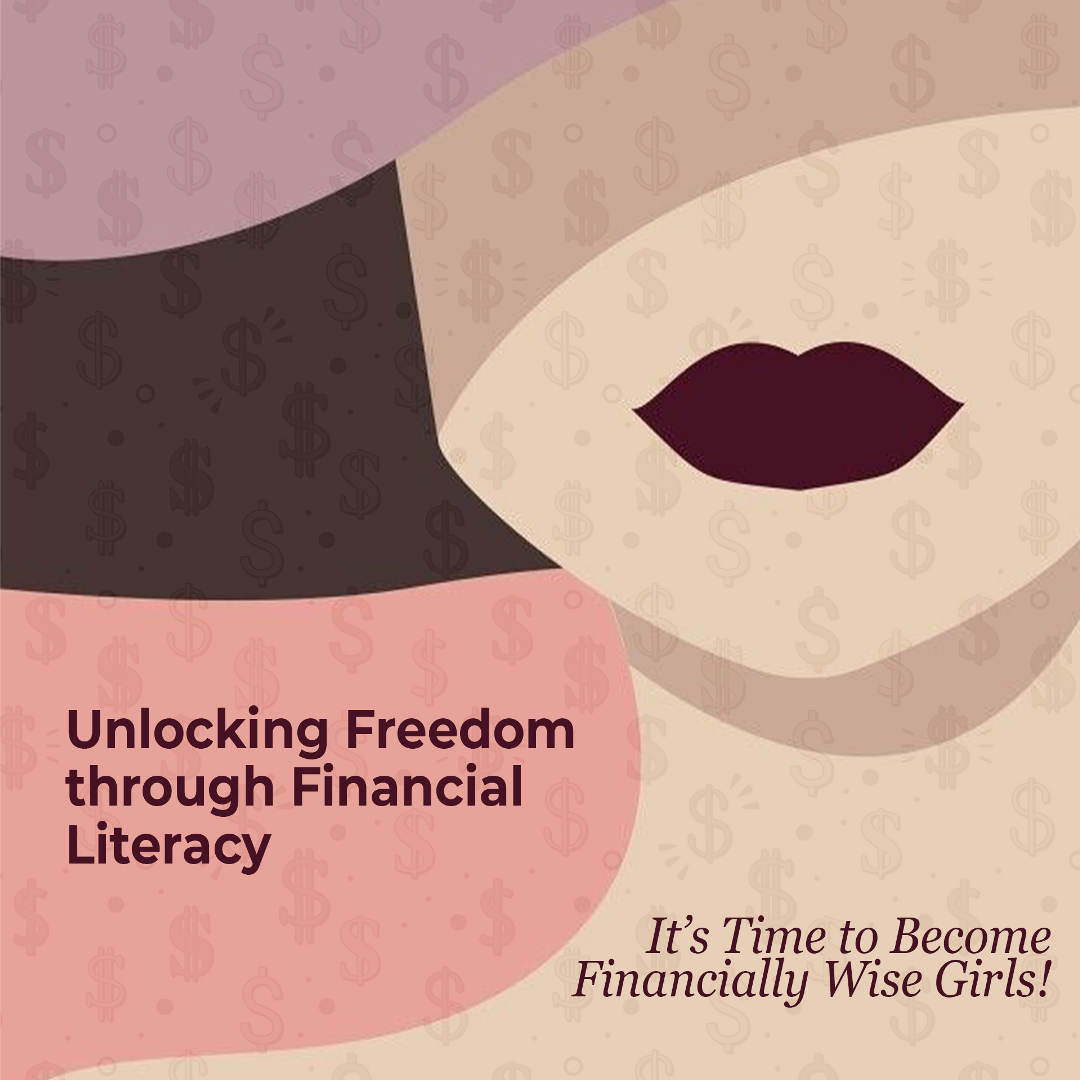Overview:
- Financial Literacy remains a prevalent challenge to address among women.
- Gender gaps in financial literacy are caused by societal, and cultural influences on the financial literacy of women.
- Understanding the basics of financial tools and personal finance management can help women make informed decisions.
- Financial literacy aids financial security. This empowers women one step towards real financial independence.
Financial Literacy Among Women
Ever since I was a child, I recall my mother saving up for emergencies. I would find cash under mattresses or hidden in secret spots around the house. It made me think about why women are held back from making financial decisions even when they are financially wise.
Looking back at my school days, I realize the lack of knowledge about financial management. There were barely prominent chapters dedicated to finance and its management in our syllabus. And that makes me question if there is a perfect time to learn and manage money.
The answer is no. You do not have to be of a certain gender or age. Financial literacy is being smart with your money whether you start young or as an adult professional. As a skill, it includes budgeting, financial management, and investments. Understanding the basics of investments today is important to grow your money and secure your future.
Financial illiteracy is the lack of this knowledge. A recent report shows that educated women struggle with financial illiteracy more than their male counterparts. In developing countries like India, the gender gap in financial literacy is wider. 20 percent of women are financially literate relative to 27 percent of men.

Prevailing Gender Gap in Finance
Despite the progress women have made in recent years, many still face systemic barriers when it comes to financial literacy and independence. However, women in leadership worldwide are breaking barriers for women, challenging societal expectations, and stepping into financial roles traditionally dominated by men. These efforts not only foster independence but also encourage other women to pursue financial knowledge and autonomy, leading to a gradual shift in cultural norms.
In most South Asian households gender roles dictate that women cannot manage money. However, women as homemakers are advised on saving aspects only. But intricate financial matters such as budgeting and investing are left to the men. The societal and cultural influences have formed prevailing prejudice regarding women being incapable of understanding finance. This scenario is coupled with a lack of basic awareness regarding finances. These prove to be major hindrances in the financial literacy, and subsequently independence, of women.
Women have managed to break out of the boxes of traditional gender roles in the last decade. Even though women face many challenges at the workplace, they are financially independent and running successful careers. Cultural shifts spurred by increased standard of living and social movements have played a pivotal role in women’s financial independence. More and more women are choosing careers over traditional gender roles. Education, awareness, and policy shifts have contributed to the positive landscape. However, most struggle to manage even a humble income due to financial illiteracy coupled with persisting cultural conditioning. The hidden consequences of lack of education in finance have become a barrier to women making financial decisions today.
Financial Toolkit for Financial Literacy
Becoming financially wise offers a wide range of benefits apart from helping women manage their money wisely. They can secure their retirement by planning for the future. They can be protected from financial fraud and exploitation. Women are also able to afford to pay their rent without compromising on the luxury bag they want to buy. There is a need for a financial toolkit in every woman’s purse now!
Start Early, Balance Goals and Finances
Early introduction to financial management can be beneficial against the stigma of finance being “the man’s domain”. There is no time to start or stop learning. The more you start venturing out to gain knowledge in the field, the better it is. But again, it also is never too late! Thanks to the easy accessibility through digital advancements in videos, courses, and blogs, information is easy to come by. However, make sure the source is legitimate and holds credibility. Stay away from any deal that promises to shoot up your money. Rather focus on education that anchors on sustainability.
Websites like Udemy, Skillshare, and EdX provide a wide range of basic financial literacy courses. The duration of these courses ranges from 1 hour to 44 hours. You are free to select one according to your time commitments. Podcasts like “Money Girl” by Laura D. Adams and “Everyone’s Talkin Money” by Shannah Compton Game are beginner-friendly and solution-oriented. Books can be a great way to form your knowledge base and strengthen it. The famous book “Rich Dad Poor Dad” has been popularized for its relatability and ease of understanding complex terms. Forbes lists a few others that can make learning about finance fun and easy.

Making Informed Financial Choice
The basics of finance start with knowing the difference between saving and investments. Savings offer a no-risk short-term engagement with your income and are easy to understand as a beginner. Look up various interest rates banks offer when opening a savings bank account. High interest rates will maximize your earnings. Also, ask about the type of savings account the bank provides that caters to your needs.
Saving accounts can be traditional savings accounts, high-yield savings accounts, and money-market accounts. Traditional saving accounts offer the easiest form of saving and require a minimum deposit. However, the return is lower as the interest rates provided by banks are less. High-yield savings offer a higher annual percentage yield (APY) in interest rates. This means that you will get higher yields from your savings. These are mostly offered by state-registered online banks. Money-market accounts on the other hand are types of savings accounts that offer a higher APY. The APY is higher than a traditional savings account but less than a high-yield savings account. However, they come with restrictions that make them less flexible as compared to the former ones. Maintaining higher credit scores is beneficial in having lower interest rates among others.
Investment caters more to your long-term goals. It can include buying bonds, mutual funds, and stocks. A portion of your income that you do not require urgently can be used to invest. This is usually the chunk of your income that you would not need to spend for 4-6 years. While investment can seem intimidating, starting slow can help. Podcasts, interviews, and insights of entrepreneurs help gain insights into financial options. These are bank loans, government programs, and angel investors. Consequently selecting a viable option can give more clarity and confidence to investors.

Securing Your Financial Future
A study shows that women tend to have a smaller pool of wealth than men at the time of retirement. This significantly limits their financial freedom and security. Furthermore, most women in developing economies tend to be a part of the informal economy. Due to this, they are more prone to not receiving social security benefits. Having a retirement fund is an efficient practice overlooked by many independent women. Begin with designing a certain portion of income that you can keep as savings. This can be a minimal amount and commit to increasing it subsequently annually. Connecting with a financial advisor who can tailor a retirement plan for you can guide you in investing right.
Community and Support
Knowing your money and managing it is a part of adulting. However, a lot of women hesitate to seek assistance on their journey toward financial literacy. In many cases, women shy away from expressing their struggle with finances. It stems from fear of being judged as unintelligent by their male or female peers.
Mentorship is as important to calculate your ventures and ensure their legitimacy. Seeking advice or guidance can be costly, but not seeking will cost more in the long run. Thus most people prefer tax advisors and financial advisors.
Community support plays a particularly crucial role for women of color in the workplace, who often face unique financial and professional challenges. Creating support networks and mentorship opportunities for women of color can help them navigate these obstacles, build financial literacy, and foster career growth.

The Role of Mentors and Advisors
It is always better to ask before acting. Expert opinions, mentorship, and guidance can help you navigate tricky financial decisions. We often get clouded by a host of information available online on savings, budgeting, retirement planning, or investments. In such scenarios, tailored and personalized guidance can help you achieve financial goals faster and build confidence. Make sure to analyze your financial grounds before you seek professional help. Reach out to someone you may know or trust. These can be your friends or relatives who are practicing currently. You can try to find people on online platforms who have expertise and can guide you in the field.
Leveraging Community Programs and Support Networks
Community programs and support networks are a great step towards gaining financial wisdom. They provide motivation as well as a shared platform to discuss challenges and opportunities. Several companies are starting to offer financial wellness programs as a part of the employer benefit package.
Conclusion:
Financial literacy is a major tool for women’s empowerment. Stepping into the world of finance can be overwhelming at first. But it requires conscious efforts, patience, and the willingness to ask for help. Start your journey by tracking your income and expenditure, and try saving 10-20 percent of your income. Seek registered financial advisors to avoid fraud and have a comprehensive understanding of the investments you make. Having a financial tribe and leveraging resources can help build a safety net and a learning cohort. Tallying your resources, assets, and what you want out of an investment should shape your decision towards it.


